We may not even realize it, but almost everywhere we go, there is an expected etiquette—the airport, the grocery store, concerts, the dog park, and so on. You’d be hard-pressed to find a situation in which etiquette is more important than at a wedding. It’s such an important day for all involved, and no one wants to stand out for the wrong reasons.
What makes wedding etiquette so tricky is that we don’t go to weddings all that often. These events happen maybe a couple of times a year, so it can be hard to remember the rules or even know them in the first place. Additionally, wedding etiquette has evolved over the years along with society. Much of what was customary at your parents’ wedding might seem dated today. That said, some wedding rules will probably never change. It’s a lot to wrap your head around and remember, so I reached out to a team of experts to break down the complicated, often controversial subject of wedding etiquette.

Between a team of wedding planners, an etiquette expert, a bridal stylist, and the founder of a wedding website, all of the bases are covered. Read on for their need-to-know tips for guests, the wedding party, and the soon-to-be married couple.
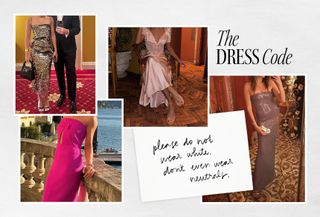
Whatever You Do, Don’t Wear White
This rule is so important that every expert that I consulted listed it as one of their dress code rules. It should be common sense at this point, but believe it or not, people still show up to weddings wearing white. Myka Meier, an etiquette expert and the founder of Beaumont Etiquette, told me, “Avoid wearing white (a color reserved for the couple) or even off-white.” In fact, it’s probably best not to wear anything even close to white, according to destination wedding planners Alison Laesser-Keck and Bryan Keck of Alison Bryan Destinations. “Wearing white or neutrals, unless it’s the theme of an event, is still very much considered inappropriate for a wedding,” they said.
Follow the Designated Dress Code
If the engaged couple has provided a specific dress code, there’s no reason not to follow it. The couple chose it for a reason, and you were likely given ample time to find something appropriate to wear. As luxury bridal fashion stylist Gabrielle Hurwitz put it, “These days, most couples are providing guests with specific dress codes and, oftentimes, even mood boards with examples of what they’re wanting. If a couple has a designated dress code, I think anything outside of that would be inappropriate.” Meier agreed. “Attire that is considered inappropriate for a wedding includes anything that does not follow the dress code,” she said. “For example, if the dress code is black tie, you shouldn’t show up in a cocktail dress or casual suit.”
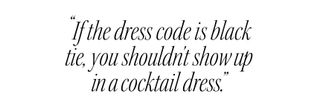
Don’t Wear Anything That Distracts From the Couple
It goes without saying that the focal point at a wedding should be the couple that’s getting married. You don’t want to be the guest who takes any attention away from them. Accordingly, something like a sequined red dress should be avoided. It’s also advisable to be mindful and respectful when choosing your outfit. Meier clarifies, “Avoid wearing anything overly flashy that could distract from the couple. It’s also important to respect cultural and venue-specific dress codes, such as avoiding overly revealing outfits for formal or religious settings.”
Shop Tried-and-True Wedding Guest Dresses

Rebecca Vallance
Anais Off-Shoulder Crêpe Midi Dress
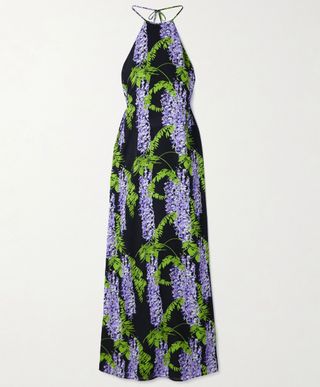
Bernadette
Frannie Floral-Print Halterneck Maxi Dress
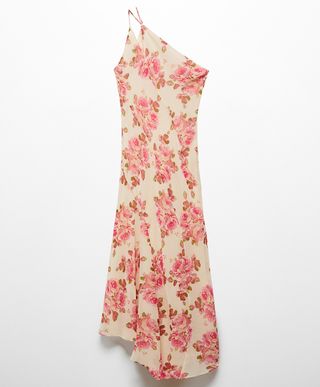
Mango
Asymmetrical Floral Dress

Check the Weather
A bad weather situation has the potential to ruin a wedding, so if you’re the one planning the wedding, it’s important to factor it into the equation when choosing your venue. Venue-selecting expert Laesser-Keck told me, “Definitely check the weather wherever you’re looking to celebrate. That’s rule number one.” It’s important to take the time of day and average climate in a particular location into consideration. “Avoid a daytime outdoor wedding in extremely hot and humid climates during peak sun hours (or not having covering for guests during that time), which can be uncomfortable for guests,” Meier added. For example, an afternoon outdoor wedding in August in New Orleans is not a good idea.
Think About Your Guests First and Foremost
While it’s important that your day be special for you and your partner, you’re also hosting a whole group of people who rely on you to ensure that they have a good time and are comfortable at your wedding. “Choosing a location that is difficult to access or lacks adequate facilities can be problematic. Ensure the venue is accessible to all levels of mobility, has appropriate amenities, and is comfortable for all attendees,” said Meier. Alexandra Macon, founder of the wedding website Over the Moon also weighed in, telling us, “I think it’s important to have a venue appropriate to the number of guests invited. You don’t want a situation where some guests have a seat and others do not, for example.”
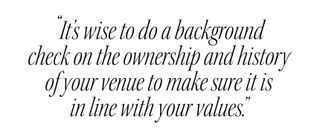
Don’t Book a Venue Based on Aesthetics Alone
While it can be tempting to choose the venue that will look the best in photos, other things need to be taken into consideration when making this major decision. Laesser-Keck, who has immense knowledge on this subject, said, “People always try to look into venues first based on aesthetics, but this is a huge mistake. Does the destination have enough hotels to fit your guests’ needs or expectations? Does the venue have a weather backup location? Do you understand the real value of what you’re booking? Most importantly, what does it not include?” As Macon pointed out, you should dig deep when considering a venue. “It’s also wise to do a background check on the ownership and history of your venue to make sure it is in line with your values,” she said.
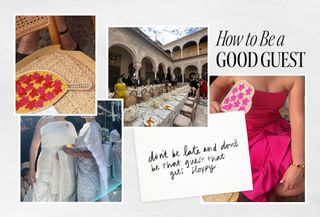
Be Respectful During the Ceremony
“To be a good guest, you should be a present and active participant in the celebration,” Macon said. It may be just another wedding to you, but to the couple getting married, it’s one of the most significant days of their lives, so showing respect for the occasion and being present is crucial. Keep in mind that every couple has a limited number of people they can invite, and they chose you. “As a guest, my biggest wedding pet peeves include people talking during the ceremony or during speeches and using their phones excessively during the ceremony,” said Meier. Speaking of phones, Hurwitz told me, “I am of the opinion that if the couple hired a professional photography or videography team, the guests should be focused on being present during the ceremony. Keep your phones and cameras in your purses and pockets until cocktail hour.”
Don’t Overindulge
Multiple experts shared that one of the worst things you can do as a wedding guest is get intoxicated. Laesser-Keck said, “Bad guest behavior typically involves way, way, way too much alcohol. Remember that weddings tend to bring all walks of life together, business associates included. You are a representation of the person who invited you.” You don’t want to be the person everyone talks about the next day for the wrong reasons. “Don’t overindulge at the bar. Getting sloppy can ruin someone else’s wedding, so avoid getting intoxicated,” Meier said. There’s also a good chance that the couple has chosen signature mocktails. Macon pointed out, “I am seeing a trend toward offering signature mocktails alongside cocktails so that all guests feel included and considered.”

Please, Please, Please RSVP
RSVP’ing for a wedding is an easy thing to do, but it’s also an easy thing to forget to do. Better yet, RSVP as early as possible—don’t wait until the last minute. Meier’s advice? “Always RSVP on time and adhere to your response. If your plans change, inform the couple as soon as possible,” she said. If you want to be a model invitee, take Laesser-Keck’s advice: “If you’re looking to drive an event host crazy, not RSVP’ing on time or not RSVP’ing thoroughly (for example, saying there’s no plus-one and then adding one or assuming you can bring a plus-one when it wasn’t extended) is a great way to do it.”
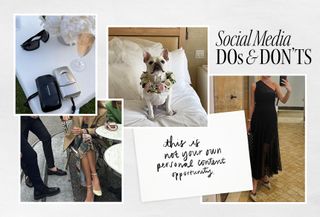
Wait to Post
“Wait until after the ceremony (no live posting!) to post pictures online, respecting the couple’s wishes,” said Meier. Social media has become a major component of weddings, and the expectations for it can differ from wedding to wedding, but there are a handful of guidelines that always apply. For starters, you don’t want to prematurely post, especially before the married couple has had a chance to. Macon added that the couple should also wait, saying, “For the bride and groom, I always encourage waiting until after the event to post anything. It’s such an important day, and you want to be entirely present and in the moment, not testing filters and typing hashtags.”
Be Mindful of What You Post
No one wants to check Instagram after their wedding and be embarrassed by what a guest has posted. “Don’t post unflattering or private moments without the couple’s permission,” said Meier. Macon points out that you also need to be aware of social media etiquette prior to the wedding. She told me, “For guests, in advance of the wedding, be cognizant about privacy. If you post a beautiful save-the-date or invitation suite, blur the wedding website or the exact location or date. You might also be sensitive to the size of the wedding when posting in the lead-up and during the event itself. If it’s an intimate wedding and you know there are several people who follow you that might feel left out, maybe keep the play-by-play to a minimum.”
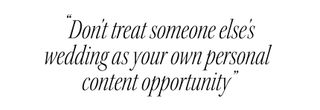
Don’t Let Content Creation Be Your Main Goal
The purpose of attending someone’s wedding is to celebrate their marriage—not to get likes. “Don’t treat someone else’s wedding as your own personal content opportunity. Obviously, everyone wants a great photo of them dressed up with their favorite people, but cocktail hour isn’t the time for your own full-fledged photo shoot with multiple locations,” said Hurwitz. Couples will often specify if and when they don’t want phones used, and guests should oblige. Laesser-Keck recommended, “Follow the lead of what the host requests. We see a lot of couples requesting no photos during the ceremony, and [it’s] for a reason.” Macon added, “If phones are welcome, be quick and discrete.”

Stick to the Registry
The engaged couple likely spent a lot of time thoughtfully creating their registry, so it’s best to respect that. “For guests, please do not go off-registry. The couple carefully curated their wish list and is hoping for those specific items,” said Hurwitz. Of course, “consider giving a gift receipt if you are unsure if the couple will want or need a gift you chose that wasn’t on the registry,” said Meier.

Don’t Bring the Gift to the Wedding
There was a time when it was customary to bring a gift to the wedding, but thanks to online shopping, those times have changed. “Don’t bring large gifts to the wedding; ship them to the couple’s home instead,” Meier said. She pointed out that this rule especially applies to destination weddings. “Avoid physical gifts at destination weddings where it’s hard for the couple to ship them back home,” she added.
Tips for the Couple
And now, a handful of tips for the engaged couple when creating their registry:
“If you don’t want to do a registry, we are big fans of having guests donate to charities that have special meaning to couples or their families.” — Laesser-Keck
“Make sure to include a wide range of price points on your registry so that there’s something for everybody.” — Hurwitz
“Don’t wait to create your registry! Family and friends may want to give you gifts as early as your engagement party. You can create an Over the Moon registry as soon as possible. Even if it’s not completely built out, it will give your guests a few options and a sense of your personal style.” — Macon
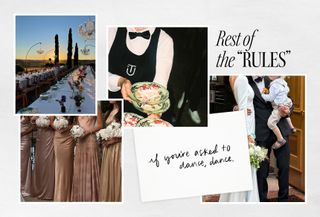
For Guests
“Never move your seat assignment.” — Meier
“Be punctual. Arrive 30 minutes before the ceremony. Coming late to the ceremony can be disruptive and seen as disrespectful.” — Meier
“Be mindful of speeches and toasts. Keep them appropriate and concise, and avoid inside jokes that may exclude guests.” — Meier
“If the couple asks everyone to dance, it’s a nice thing to help them get the party started. If you aren’t a dancer, then at least clapping along or cheering for the couple is an alternative to show support and spirit.” — Meier
“Respect the couple’s decisions regarding their wedding, from the menu to the guest list. It’s their special day, and their choices should be honored.” — Meier
“[During the ceremony], whatever you do, do not move into the aisle or flail your arm out to get a better shot. In my opinion, get your one or two shots, then turn your phone off and pay attention to the ceremony.” — Macon
For Hosts
“Give guests plenty of time to make plans for any wedding involving a large amount of travel. Twelve months is ideal.” — Laesser-Keck
“This goes without saying, but as a reminder, be super clear and concise about event information, as guests have busy lives and don’t often read the particulars.” — Laesser-Keck
“It should be communicated to the guests right at the point of the save-the-date [if the wedding] is adults-only.” — Laesser-Keck
“It’s nice to schedule the ceremony and reception in such a way that your guests are not left rushing or, in the event of too much time, languishing.” — Macon
“Typically, day-of services like hair and makeup [for the wedding party] are covered by the couple, particularly if this is something you’re requiring.” — Macon
“The wedding party shouldn’t be expected to pay for transportation to and from wedding events.” — Meier
“My potentially controversial opinion is that if you’re asking your wedding party to wear something super specific (such as a specific dress or tuxedo rental), you should cover the cost of it.” — Hurwitz
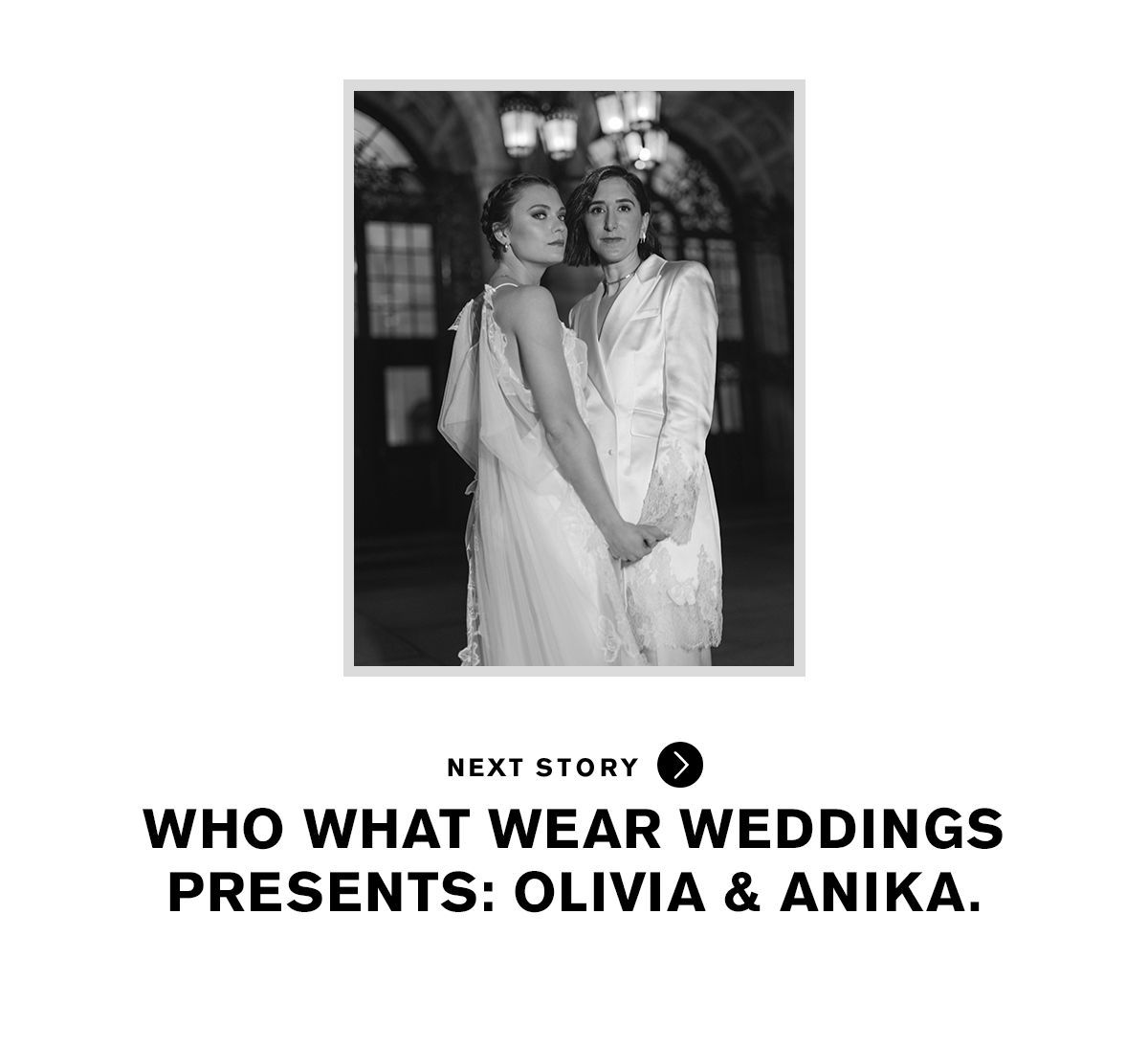





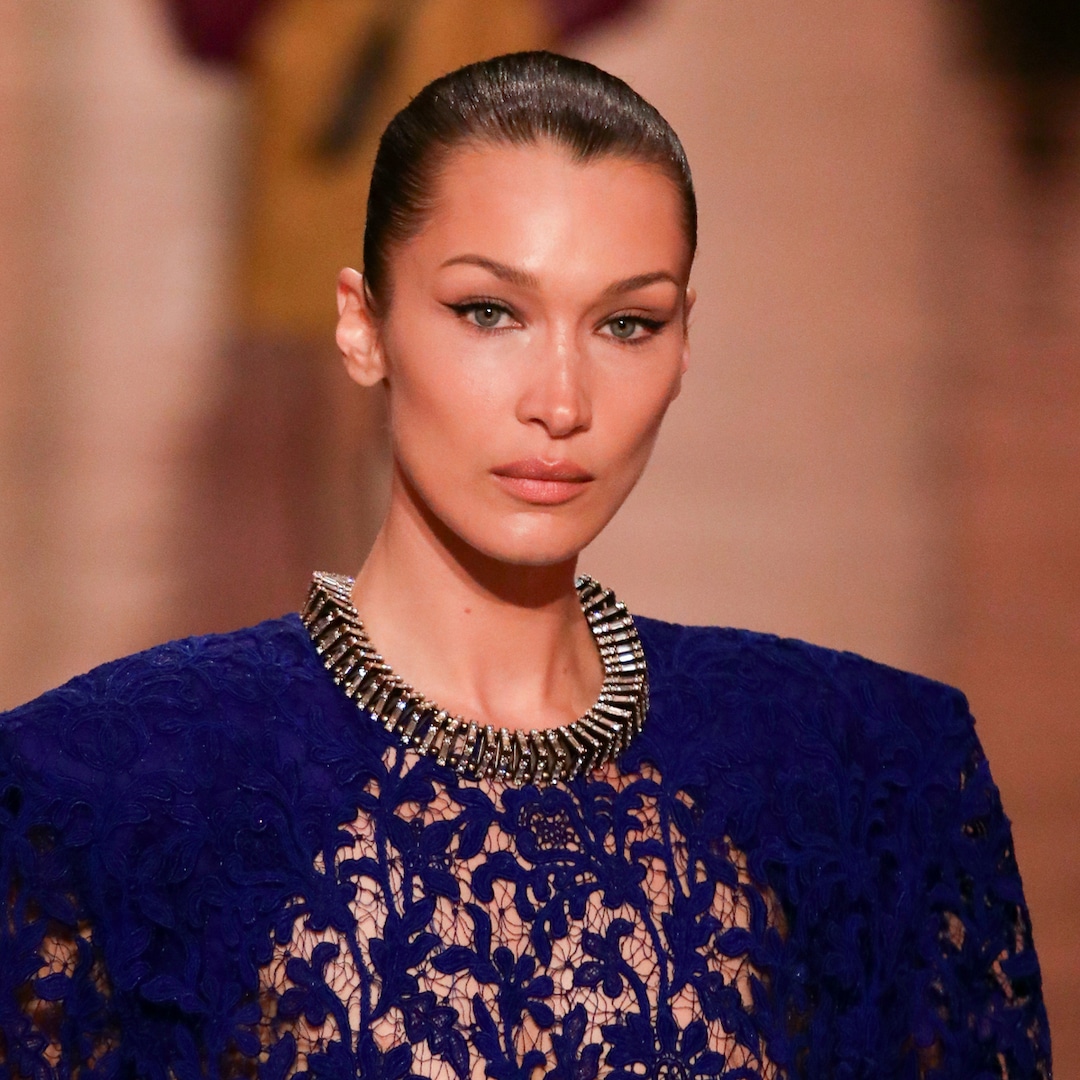


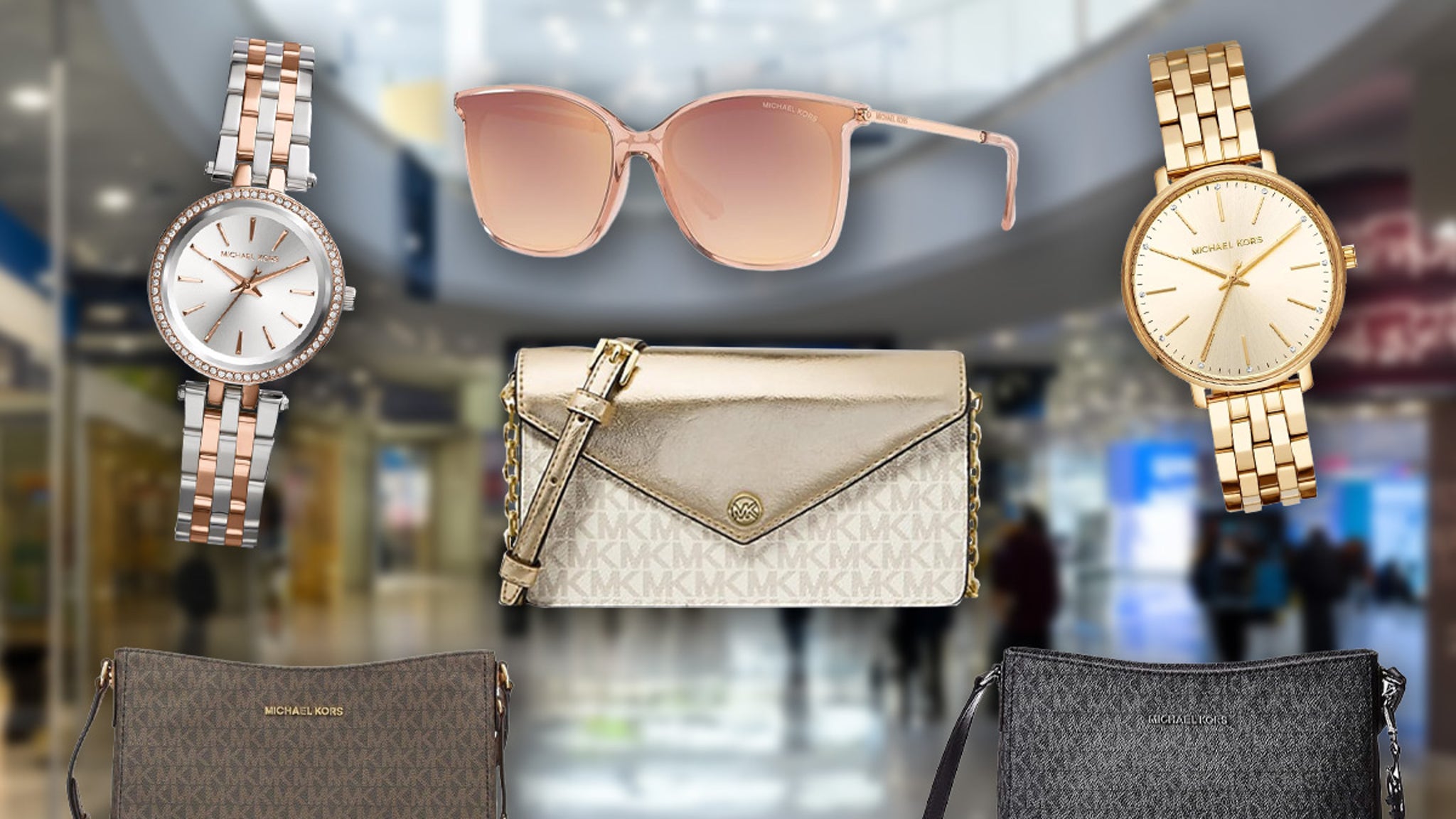












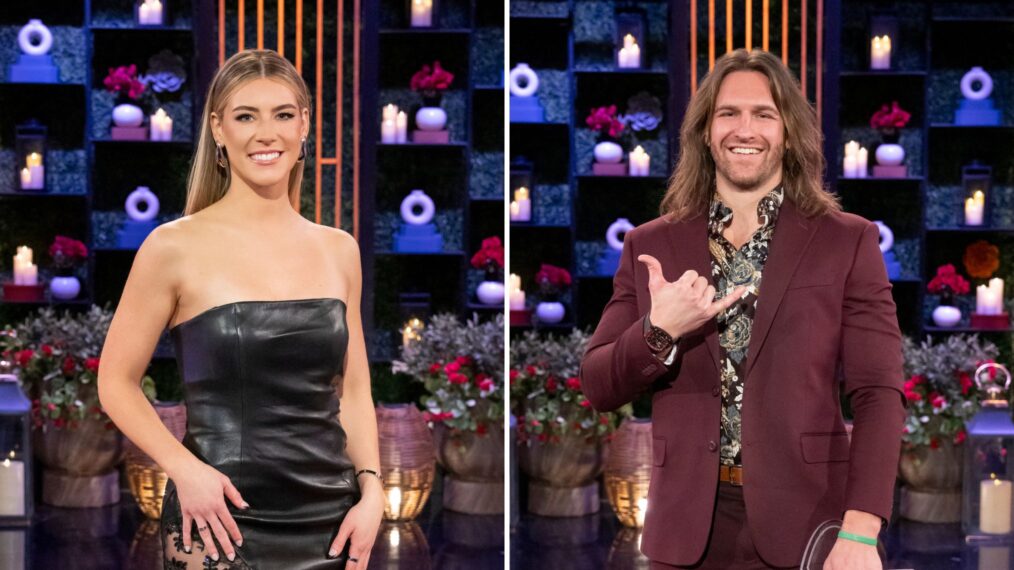















:quality(85):upscale()/2025/03/13/705/n/1922564/18fa347067d3001e6b0d50.77533101_.png)

:quality(85):upscale()/2025/03/12/900/n/1922564/ae21a1a167d1f08278bdd5.84728850_.png)
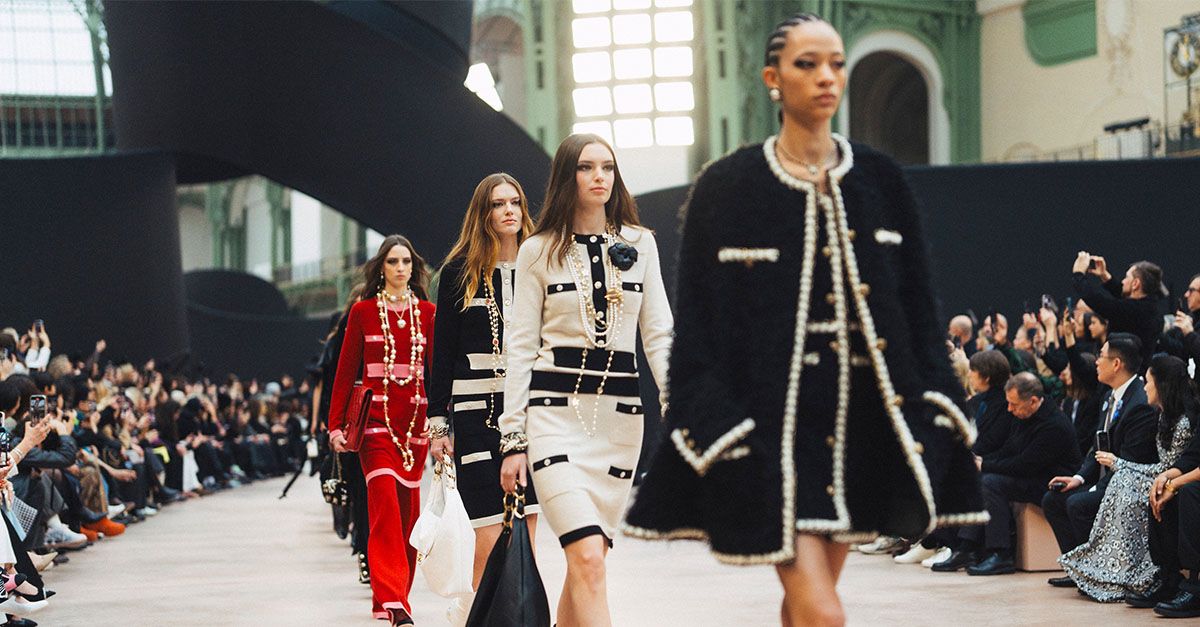
:quality(85):upscale()/2025/03/10/032/n/1922564/6d4c512167cf79cc97a105.46723546_.jpg)
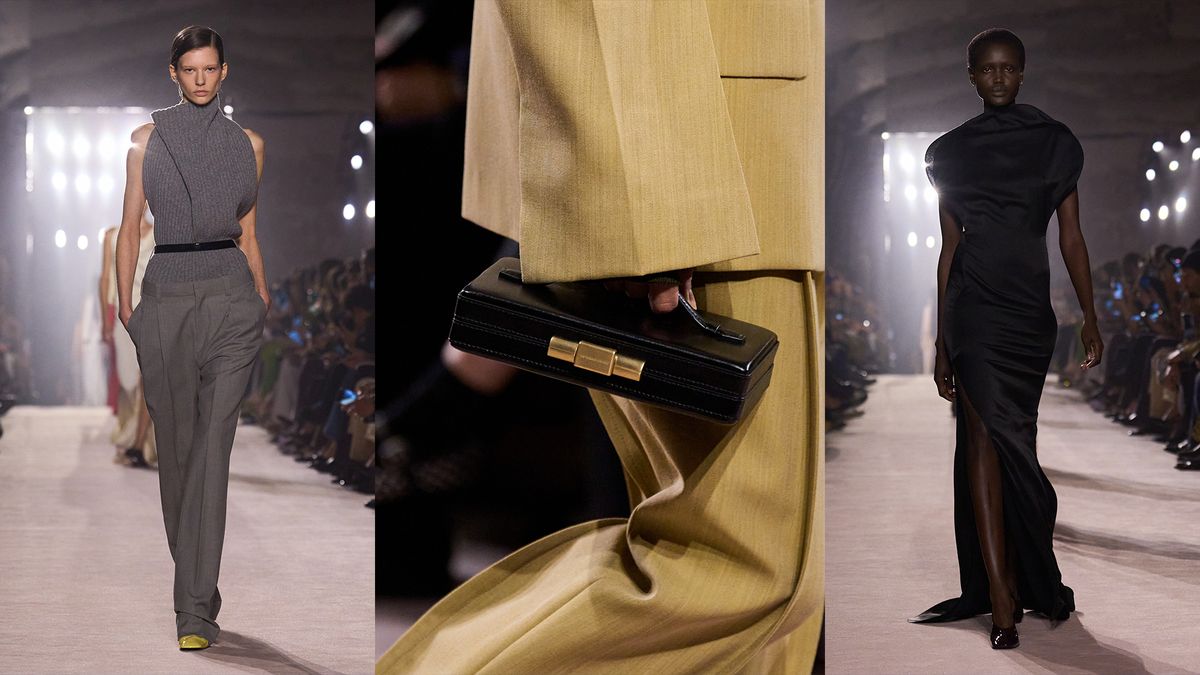
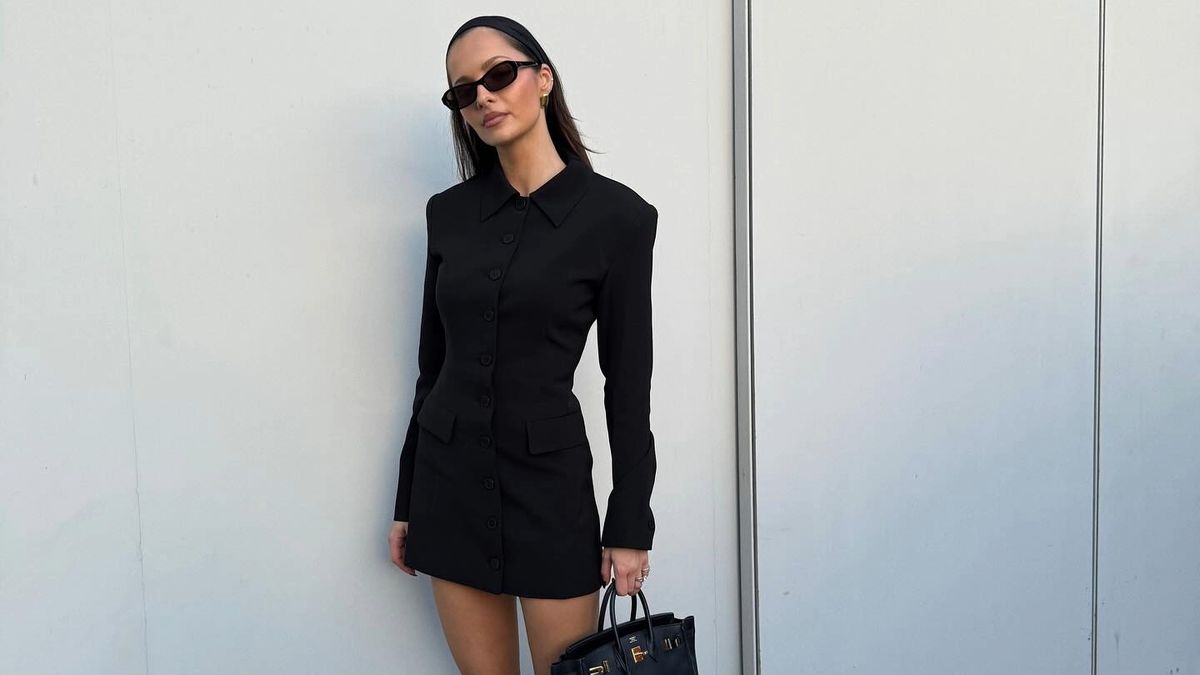
:quality(85):upscale()/2025/03/08/601/n/1922564/c69f7e2e67cc457eb25755.07032611_.jpg)

![‘Silent Hill f’ Announced for PlayStation 5, Xbox Series and PC; New Trailer and Details Revealed [Watch] ‘Silent Hill f’ Announced for PlayStation 5, Xbox Series and PC; New Trailer and Details Revealed [Watch]](https://i0.wp.com/bloody-disgusting.com/wp-content/uploads/2025/03/silenthillf-1.jpg?resize=900%2C580&ssl=1)



![Iggy Azalea – Money Come [Official Music Video] Iggy Azalea – Money Come [Official Music Video]](https://i.ytimg.com/vi/7t5V5ygeqLY/maxresdefault.jpg)


![Mason Ramsey – Twang [Official Music Video] Mason Ramsey – Twang [Official Music Video]](https://i.ytimg.com/vi/xwe8F_AhLY0/maxresdefault.jpg)
















